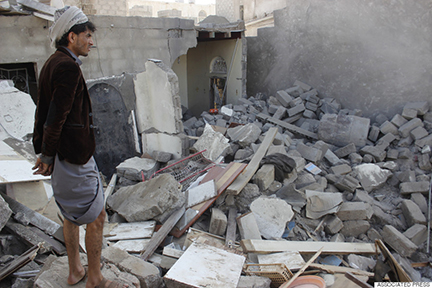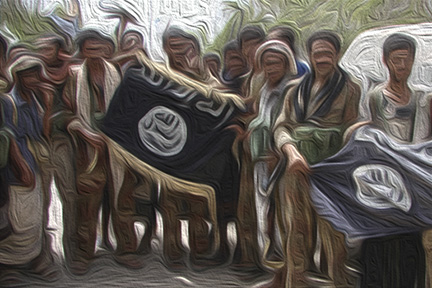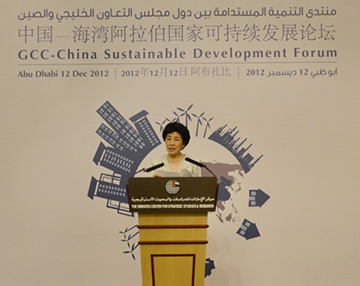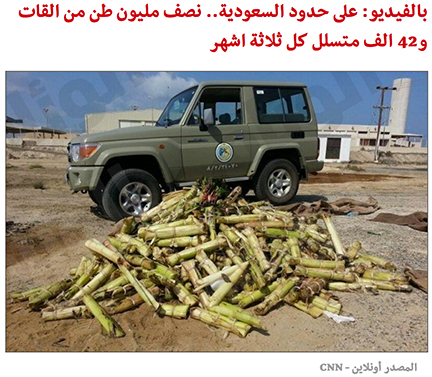
For my post on the Arab youth views of democracy, click here.

For my post on the Arab youth views of democracy, click here.

Saudi Arabia has announced that their Decisive Storm bombing campaign is over and they have accomplished their apparent goal of destroying any military capacity of Yemen. There is an old proverb in Arabic that states “ba’d kharab Basra” (after the destruction of Basra) and it is quite apt as a follow up to this news. The weapons destroyed can be replaced, and no doubt at some future date will be, but the lives lost and the mortal wounds to Yemen’s pride can never be restored even by a so-called “Restoration of Hope.” The Saudi offer to pay millions to rebuild Yemen pales in terms of what I assume must be measured by at least a billion or more in terms of the bombs dropped and resupplied. If instead of attacking Yemen from the air, the same amount of money had been given to build health clinics and schools, what a different outcome there would be. Instead, the stench of war is not about to be overcome by any monetary perfuming from abroad.
The damage inflicted by this ill-conceived war campaign is obvious. Forget the nonsense about an Iranian threat, which there never was. The Huthis never controlled anything; it was Salih’s former military supporters who were behind the takeover of Sanaa and the push to Aden. Try to remember the real threat inside Yemen, the one that energized the U.S. drone campaign: al-Qaida, known as Ansar Sharia, has more power and more sympathy now that at any other time. The south is basically in their control. There is little chance that they would welcome Hadi back. So the result of this bombing is a totally destabilized Yemen, a security nightmare, a humanitarian crisis that is not likely to be alleviated soon. Continue reading Ba’d kharab Sanaa

There is a sense in which all wars are stupid wars. But some are more stupid than others. Invading Iraq, which posed no tangible danger to the United States but filled the brainless crania of a group of neocons, is a prime example. Can you imagine Iraq as an ally of Iran or as a breeding ground for extreme ISIS terrorists if Saddam or one of his cronies was still in command? This is not to praise a butcher like Saddam, but to point out that the unintended, even if quite predictable, outcomes of hastily made warmongering tend to take on lives, as they take out lives, on their own. So here is the current scorecard for Decisive Storm, as it nears a month of nightly bombing. Instead of weakening the unholy alliance between the Huthis and Ali Abdullah Salih, this group controls more territory than it did when the bombing started. The major shock from the “shock and awe” campaign thus far is that it is destroying Yemen’s infrastructure and formal military structure, but steadily gaining allies who resent the vast destruction being unleashed on their homeland. Many of those Yemenis who did not like the Huthis now hate the Saudis even more. In addition to the homeless and the dead, the pride of Yemeni nationalism has been seriously wounded, but it is nowhere near dying.
Once upon a time the enemy in Yemen was al-Qaida, the group that sparked our unending and unnerving “War on Terrorism.” It was self-styled as a war against the uncivilized, since in this case only the civilized could muster drones and sophisticated bomber planes. Under Obama’s watch a few al-Qaida operatives were eliminated, along with a larger number of civilians who get classified as collateral damage. The American people are still being told that al-Qaida is our main enemy. Remember the Alamo; remember 9/11. But no longer, it seems. Continue reading Is the enemy of our enemy still an enemy?

Since the start of the Saudi-led Decisive Storm campaign in Yemen, I have published two commentaries on the blog of the Center for Middle East Studies at Lund University and three interviews on The Real News. While the situation is changing daily, seemingly for the worse each day, I note these commentaries here:
Lund Blog:
Proxy Morons: The Demolition of Yemen (http://www.menatidningen.se/english/proxy-morons-the-demolition-of-yemen) March 27
Sliding Towards a Virtual Genocide in Yemen (http://www.menatidningen.se/english/sliding-towards-a-virtual-genocide-in-yemen) April 13
The Real News:
Proxy Morons: The Demolition of Yemen (3/1)
http://therealnews.com/t2/index.php?option=com_content&task=view&id=31&Itemid=74&jumival=13565 April 4
Proxy Morons: The Demolition of Yemen (3/2)
http://therealnews.com/t2/index.php?option=com_content&task=view&id=31&Itemid=74&jumival=13636 April 12
Proxy Morons: The Demolition of Yemen (3/3)
http://therealnews.com/t2/index.php?option=com_content&task=view&id=31&Itemid=74&jumival=13639 April 13

The Library of Congress has a very nice website with online resources regarding its collection of Near Eastern materials.

The GCC States and the Viability of a Strategic Military Partnership with China
By Imad Mansour, Qatar University, The Middle East Institute, Mar 17, 2015
The term “strategic partnership†has been increasingly used in GCC circles to signify that relations with China are important and worthy of long-term investment. In a March 14, 2014 speech during his visit to Beijing, Saudi Arabia’s then Crown Prince Salman announced that “we are witnessing the transformation of the relationship with China to one of strategic partnership with broad dimensions, to the benefit of both our countries.â€[1] Saudi Arabia’s position was echoed by the emir of Qatar during a 2014 visit to China in which issues of common concern to all GCC states, especially combating terrorism, were discussed.[2] Abdel-Aziz Aluwaisheg, GCC general assistant secretary for negotiations and strategic dialogue, has also noted that there is growing interest in the Gulf to develop a “strategic dialogue†with China.[3]
Despite this growing GCC recognition of China’s strategic role in the region, what exactly a “strategic partnership†or “strategic dialogue†would look like remains unclear. This essay discusses why officials in GCC member states might be hesitant to embrace the idea of China as a viable strategic military partner, while at the same time recognizing the need to further develop relations with China.
Securing Independent Military Capabilities
From the perspective of GCC leaders, the main military advantage of partnership with China is Beijing’s potential willingness to provide weapons that the United States is currently reluctant to sell. Given the United States’ lukewarm responses to recent regional unrest, the GCC countries are seeking to augment their independent capabilities, and China could be an important supplier, whether or not it is a full “strategic partner.â€[4] These GCC views are based on the understanding that as economic interdependence grows, China might be more willing to provide advanced weapons systems in greater quantities. It is important to note that looking to China for arms sales is consistent with the GCC states’ broader strategy of expanding their network of suppliers.[5]
However, GCC leaders continue to assess the benefits of such an arrangement through the prism of their enduring relationship with the United States. This is largely due to historical momentum. GCC states have long procured most of their military hardware, training, intelligence systems, and combat systems directly from the U.S. government or from American businesses. In addition, the United States and its allies share GCC concerns about containing regional conflicts in Iraq and Syria, as well as the region-wide threat posed by al-Qa‘ida and its affiliates.[6] Furthermore, it seems that despite its reluctance to sell certain weapons directly to the GCC, the United States has tacitly approved GCC purchases of such weapons from China.[7] This balance―whereby the United States sells the GCC most of its conventional weapons systems, while GCC states purchase other approved weapons elsewhere―allows the GCC to accrue the benefits of remaining within the U.S. umbrella while also buttressing its defenses. Obtaining military hardware from China that the United States has not approved would involve an extremely delicate diplomatic game—one in which the GCC stands to lose more than it would currently gain. Continue reading The GCC and China

The media news network CNN sent reporter Nic Robertson to the border of Saudi Arabia and Yemen, where he was given a tour and saw several of the Yemenis caught smuggling over the border. One of the items being smuggled was qat. A young boy was given $50 to smuggle it into Saudi territory. The authorities tell him that in the past three months they captured close to half a million tons of qat worth 100 million dollars on the street. Here is one way the Huthis are getting cash. The report indicates that the Saudis are spending a lot of money to build fences and guard towers, although much of the border is so rugged it is impossible to stop everyone. Robertson is a bit overactive in his role at one point telling the Saudi interior spokesman with him that the Iranians are behind the Huthis and then saying this is what the Saudis say. I suspect it is what the Saudis say, but it was presented as a statement in the excerpt provided.
You can watch the video here in English, here in Arabic and read about it in Arabic here.


President Hadi of Yemen, left; King Abdullah of Saudi Arabia, right
In the space of 24 hours two countries on the Arabian Peninsula have seen a change, or at least anticipated change, in leadership. Yesterday President Hadi of Yemen, his Prime Minister Khaled Baha and the entire cabinet resigned after bowing to demands made by the Huthi leadership. The complicated political system ensures or at least suggests that he must remain in power for at least three months, although what power he actually has is severely limited. Not long after midnight King Abdullah of Saudi Arabia passed away at the estimated age of 90. The new Saudi monarch is Crown Prince Salman bin Abdulaziz Al Saud, who is 79, with Muqrin Bin Abdulaziz as the new crown prince. Given the fact that Sultan Qabus of Oman is in his mid 70s further change is possible as the years roll by. Qatar and the Emirates have relatively young rulers, so their stability does not appear to be in question.
Yemen is in free fall politically. The Huthis have taken control of most of the northern highlands and the capital city Sanaa, while they continue to battle local tribes in Marib and the Jawf. Hirak has, at least in spirit, seceded from the once-touted wahda. Al-Qaeda continues its attacks on Yemen’s military and the Huthis, while there are now reports that ISIS/ISIL is trying to muscle into Yemen as well. Hadramawt has also removed itself from any central authority. Only Socotra remains isolated from the potential for violence. This political quagmire is even murkier due to the behind-the-scenes (and at times quite overt) maneuvering of former President Ali Abdullah Salih, who remains a potent force and appears to have ambitions of regaining power. Yemen has no functioning government, the economy has ground to a halt, foreign aid from the Saudis has all but ceased and there are daily clashes that take the lives of ordinary Yemeni citizens. Yemen has not become another Iraq or Syria, but it is teetering on the brink. Continue reading Yet more change in Arabia